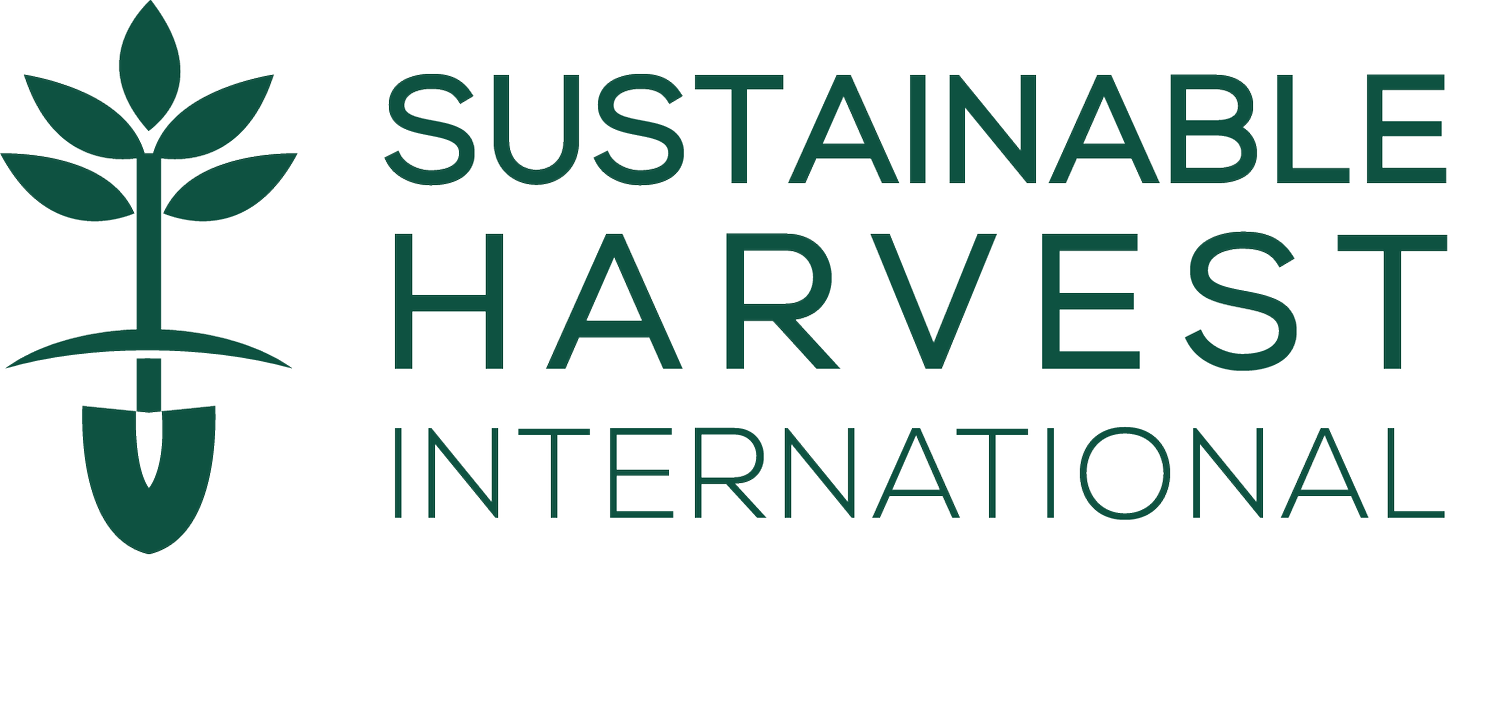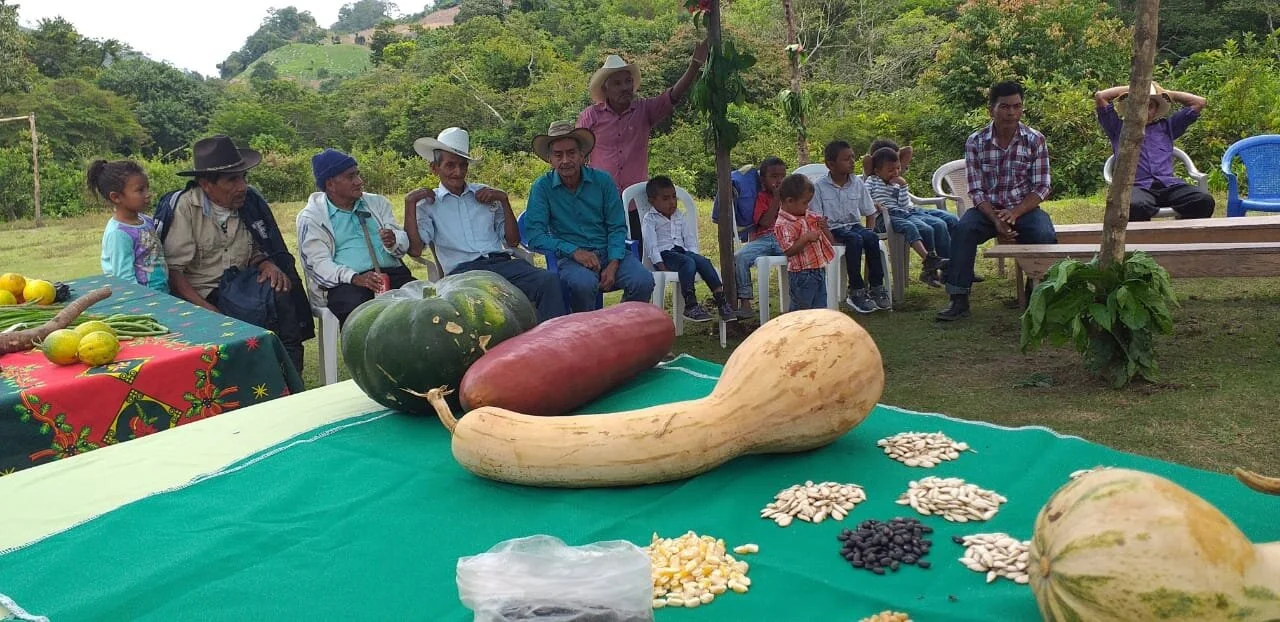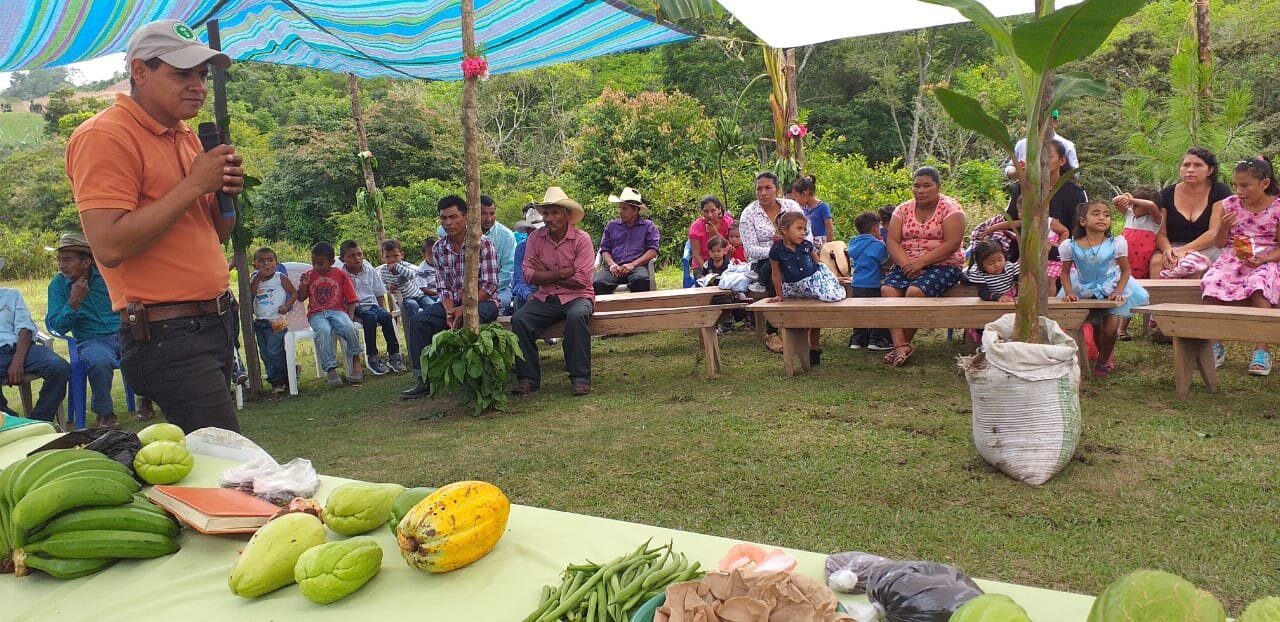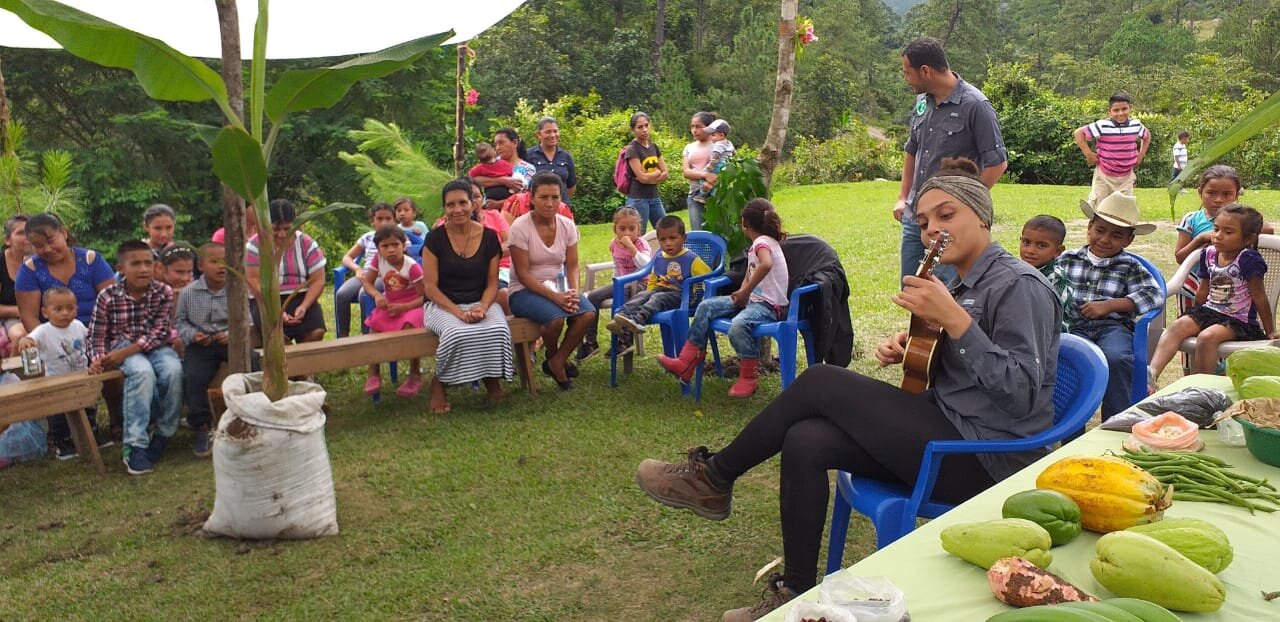Every year, the communities of El Caliche and La Laguna II in Siguatepeque, Honduras organize a seed exchange event where they share crops and seeds from their vegetable gardens. This initiative started two years ago when the field trainers of SHI-Honduras and SHI’s participant families noticed that some crops were not available during the summer and some participant families had different crops than other families.
In these two communities, there are 29 families, 16 in El Caliche and 13 in La Laguna, working with SHI field trainer Obed Gomez. Obed has long been a part of the SHI-Honduras family, first as a participant farmer and now as a field trainer, and is well-known for his sense of humor and strong work ethic. After graduating from SHI’s program as a participant farmer in the department of Santa Barbara, he joined the SHI-Honduras staff in 2016.
Obed is now working with the communities of El Caliche and La Laguna through phase 4 of SHI’s five-phase model. Phase 4 is a critical moment as SHI participant families transition from subsistence farmers to agricultural entrepreneurs. During this time, participant families examine economic opportunities, identify markets, and strengthen their entrepreneurial skills. In addition to producing for their own family’s personal consumption, they explore selling any surplus from their harvest. For the 23 families actively producing crops in their vegetable gardens and fields in El Caliche and La Laguna, the seed exchange is an important opportunity to share knowledge and resources while strengthening community bonds.
In November 2019, Obed worked with community members to prepare the seed exchange event. Speaking about this initiative, Obed said, “we tried to identify products that were resistant to drought, including the sweet potato, cassava, tubers, bean seeds, Canavalia bean seeds, yellow corn, pacaya corn, cane, lemongrass, valerian, creole bean. Most were products that were produced locally. In addition to the seeds, other products were shared, such as processed coffee, eggs, among others.”
SHI field trainer Obed Gomez in El Caliche, Honduras in 2017.
FROM THE PERSPECTIVE OF FIELD TRAINER OBED GOMEZ
SHI Staff: Why is sharing seeds so important for SHI’s work?
Obed: These events are important because it not only allows us to rescue endangered seeds, but it also rescues ancestral values and, above all, it is a process of raising awareness for families so that they understand the value of producing their own crops.
SHI Staff: What was necessary to be done in order to organize the producers?
Obed: First, we had monitoring visits to identify which crops they had in their gardens and also verify that the seeds were not duplicated among the participants.
SHI Staff: Why was it important to include the producers in organizing the event?
Obed: One of the most important things about the process was to motivate and raise awareness among producers so that they would realize which crops they had and which they did not. In addition to the monitoring visits, something else that was done was to link in the Country Director and other field trainers in the office so they could lend their support and help coordinate all the activities in the best way.
The leaders who participated in organizing the event were the participant families from the community of El Caliche where the seed exchange took place. These leaders included Nelson Cirilo Alvarado, Abran Dominguez, Derbin Omar Dominguez, to name a few. But, in general, all 16 families from El Caliche were the primary movers and shakers in organizing this event, both husbands and wives collaborated in everything.
In this phase [phase 4] we see changes in the participation of families at workshops since now they are more integrated into the activities. Also, not only are they observers, but now they are the ones who are putting into practice what they have learned in the workshops. The changes we have seen are not only in the production of their food but also in a change in attitude. They are not only dedicated to cultivating for cultivation’s sake but rather, they now strive to diversify their gardens and produce their own seeds.
PARTICIPANT FARMERS’ EXPERIENCE
Nelson Cirilo Alvarado, otherwise known as Don Cirilo, is a participant farmer from El Caliche. He is 58 years old, married to Rosalinda Mejia, and the father of Cristian Alexander Alvarado Mejia.
Don Cirilo is pictured above with Dasha Montcalm, an EARTH University intern from Costa Rica. They are using the plastic tank to trap black soldier flies as a sustainable (and nearly free!) food source for chickens.
Don Cirilo has been working with his vegetable garden for 4 years. He produces cassava, onion, taro, coriander, tomato, ginger, amaranth, and cucumber. Products he received from the seed exchange included chaya, cane, bananas, soybeans, and oregano.
Victor: What did you like most about the seed exchange event?
Don Cirilo: What I liked was that we all participated. In addition, we had the opportunity to share our experiences and leave seeds from our garden for those who do not have them so they can diversify their gardens as well. The best experience I took from the exchange was community participation.
SHI Staff: How has the current pandemic situation affected you in terms of food access?
Don Cirilo: Regarding food for our families, it has not been a problem since we have our crops in our garden, the chicken coop, and the fish farm. We no longer need to go to the market which is closed. I think that with this pandemic what has been affected is the sale of our surplus crops since access to vehicles is limited. So, this has decreased the income we had from the sale of our products.
Mauricio Jimenez from the community of La Laguna.
Mauricio Jimenez is a participant farmer from La Laguna. He is 40 years old, married to Lenny Isabel Medina, and father to 9 kids.
SHI Staff: What was one new thing you learned from the seed exchange?
Mauricio: We had a wonderful time. We had a lot of time to share experiences with other members of the community, especially to gain confidence and learn to work together for our community.
SHI Staff: What was the food situation like before SHI came to work in the community?
Mauricio: Before, we worked just to work. We never thought that the activities we carried out affected the environment. We didn't know anything about organic production, much less that we could grow our vegetables in a small space in our homes.
SHI Staff: How does the current pandemic situation affect you in terms of food access?
Mauricio: I do not feel depressed about things because I have everything we eat in our homes thanks to the support of SHI. But sometimes it worries me that our grains have not been able to be sold as before due to our lack of access to cities.
BOLSTERING FOOD SOVEREIGNTY
Seed exchanges are part of SHI’s effort to promote the food sovereignty of participating families. Food sovereignty is more than just securing access to food. Via Campesina, an international peasant movement, defines it as “peoples’ right to determine their food and agricultural systems and the right to produce and consume healthy and culturally appropriate food.”
For Don Cirilo, food sovereignty “means being solvent in food” and he sees it directly reflected in the SHI assistance he has received in “the chicken orchard, from the agroforestry plots, and also the granaries… to keep the beans and corn from our harvest.”
Through workshops that SHI provides to families, SHI assists families in securing access to food when other sources might become unavailable. This is critically important in times of crisis, such as the Covid-19 pandemic. SHI participant farmers are now using land that they did not use previously in order to produce their own food for their families. In doing so, they are regenerating their land and drawing down carbon for the benefit of the entire planet. In turn, they share knowledge and resources with others, both participant and non-participant families, in their own communities.
Thanks to the continued support of our donors, participating families have managed to overcome issues of food insecurity, one of the greatest challenges posed by the Covid-19 pandemic.










